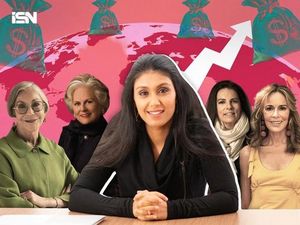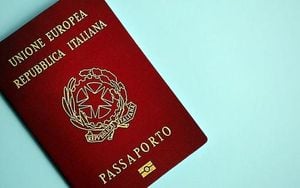In a shocking incident aired on March 24, 2025, during the live broadcast of Quarta Repubblica, former Prime Minister Romano Prodi's conflict with journalist Lavinia Orefici raised serious questions about the respect afforded to members of the press.
The episode, hosted by television personality Nicola Porro, featured a heated exchange between Prodi and Orefici, who asked him about a reference made by current Prime Minister Giorgia Meloni to the historic Ventotene manifesto during a parliamentary session. Prodi, visibly annoyed by the inquiry, responded brusquely, criticizing the question as lacking historical context and labeling it as "vulgar politics."
In her account, Orefici declared, "The President Prodi responded to my question in an aggressive and intimidating tone. He took a lock of my hair and pulled it. I felt his hand in my hair; it was shocking for me. I have worked for Mediaset for 10 years, and I have never experienced a situation like this. I felt offended as a journalist and as a woman." Her remarks highlight the troubling reality that female journalists can face during interactions with prominent political figures.
Following the broadcast, Porro publicly criticized Prodi’s behavior towards Orefici, striving to support his colleague. The airing of the video clip prompted further discussion, with many anticipating that it would shed light on the exact nature of Prodi’s actions. The video included images of Prodi's hand seemingly reaching toward Orefici's hair, contradicting his claims.
Prodi responded to allegations of misconduct through ANSA, denying that he had pulled Orefici's hair. He asserted, "I did not pull the hair of Lavinia Orefici; I only put my hand on her shoulder because she was saying absurd things." This defense has drawn skepticism, especially in light of the footage that was aired during the show.
The broader implications of the incident drew attention to the significant challenges faced by women in the field of journalism. Gianni Cuperlo, a political figure, defended Prodi, suggesting that the former prime minister reacted to a provocative question in a manner that was not intended to offend. He described Prodi's action of placing a hand on Orefici's shoulder as "paternalistic" and defended it as a moment of frustration with perceived absurdity in the question she posed.
But accusations of paternalism can perpetuate the very power dynamics that many in the industry seek to dismantle, and Orefici's assertion that she had approached Prodi with respect sheds light on the need for a cooperative dialogue between public figures and the media. "I wanted to know what he thought," she reiterated, highlighting her expectation for mutual respect in journalism.
As the discourse surrounding this incident continues to unfold, it exemplifies the need for accountability for political figures and an adherence to journalistic integrity. Lavinia Orefici’s experience reflects a broader narrative about the treatment of women in the workplace, particularly in high-stress political environments.
The airing of the full video during Quarta Repubblica marks a critical moment not just for Prodi’s political career but for the entire landscape of interactions between politicians and the press. The public response to this event could serve as a litmus test for attitudes toward respect and dignity in political discourse.
In a world where female voices are often marginalized, this incident also invites necessary conversations about gender dynamics within journalism. Orefici's insistence on being treated with dignity and respect underscores a universal call for change—a change that transcends individual incidents and speaks to the systemic barriers that continue to exist for women in media.
Ultimately, the ramifications of the encounter may extend well beyond a singular confrontation. It invites all stakeholders in the political arena—journalists, public figures, and the public—to engage in a more profound reflection on professional conduct and mutual respect.








